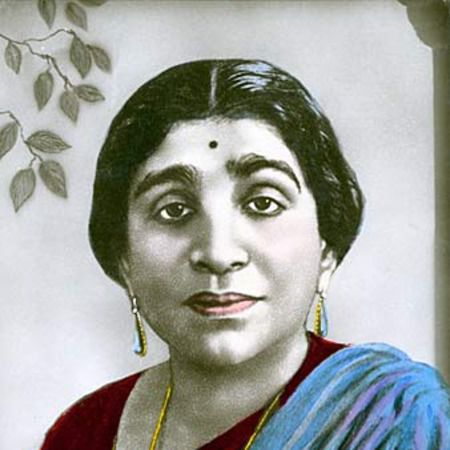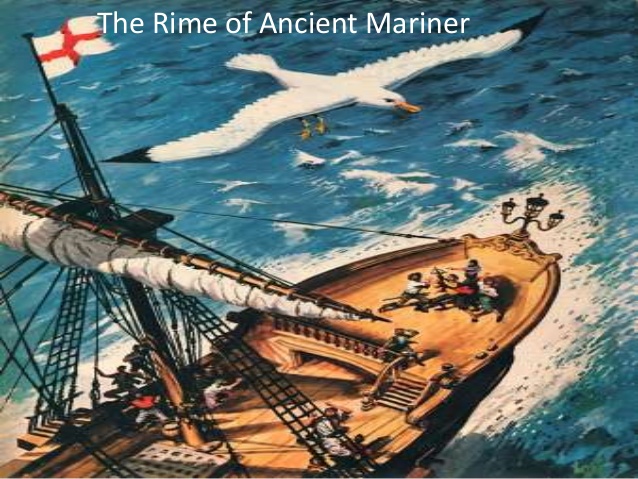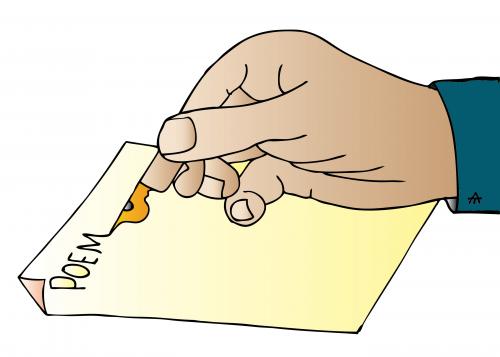“Even Past Fifty” by Shanta Shelke was a part of her collection of poetry entitled Gondan (Marathi for “tattooing”), which was published in the year 1975. This poem was originally written in Marathi, and it was translated into English by the noted Indian author Vilas Sarang.
This poem is written in the first person. Hence, we can equate the speaker of the poem with the poet herself. However, the poet is not writing about her own experiences here. Instead, she is apparently narrating the story of another woman. What we must consider is that the poet herself was 53 years old in 1975. So perhaps the protagonist is meant to be a representative of all women over the age of 50, and starting to age, including herself.
About the poet:
Shanta Janardan Shelke was primarily a Marathi poet and writer. She was also a journalist, a professor, a composer, a translator as well as a writer of children’s stories.
Some of her compositions were published as stand-alone poetic works, and others as songs sung by Marathi greats like Lata Mangeshkar, Asha Bhonsle, and Kishori Amonkar, to name a few.
Shelke was born in Indapur, Pune on 19th October 1922. She completed her graduation in Sir Parshurambhau College in Pune. She did a dual M.A. in Marathi and Sanskrit and stood first in Bombay University. During this time, she also won the Na. Chi. Kelkar and Chiplunkar awards.
She served as assistant editor of the Navyug, a weekly publication run by Acharya Atre, for 5 years. She then moved to Nagpur to work as a professor of Marathi in Hislop College located there. After this, she moved to Mumbai and held jobs with such organizations as the Film Censor board, the Theatre examination board, and the Govt. book award board.
Her final teaching position was at Maharshi Dayanand College in Parel, Mumbai. She retired from there after long service and settled in Pune.
Shelke contributed extensively to Marathi literature in the form of poems, stories, novels, character sketches, critiques, and introductions. She also helped translate English cinema and wrote for newspaper columns. Some such newspaper columns were later converted into books. Examples include Ek Pani, Madarangi, and Janta Ajanta.
She also produced Lalit literature like Anandache Jihad, Pavsaadhicha Paus, Sansmarane, DhoolPati (an introspective autobiography), Avad Nivad, and Vadildhari Manase (a collection of character sketches).
Her novels are Odh, Dharma, Punarjanma, Chikkhaldrayancha Mantrik, Nararakshas, Bhishanchaya, Majha Khel Mandu De, and Vijhti Jyot.
Shelke wrote her first song for the film Ram Ram Pavna in 1950.since then she has written many famous song collections, some of which are Varsha, Godan, Rupasi, Janmajanhavi, Kalyanche Divas Fulanchya Rati, Toch Chandrama, Purvasandhya, and Ityartha.
She has translated a Japanese haiku to produce Panyavarchya Paklya, the Sanskrit work by poet Kalidasa entitled Meghdoot into Marathi, a novel by Virendra Bhattacharya into Lokanche Rajya, and the novel Little Women by Louisa May Alcott into Chaughijani.
Shelke has won numerous awards throughout her life including the Soor Singaar award for her song “Mage Ubha Mangesh”, the Govt. of India award of excellent for songwriting for her film Bhujang, the Ga Di Madgulkar award in 1996, and the Yashvantrao Chavan Pratishan Award in 2001, for her contribution to Marathi literature. Shelke died of cancer, on 6th June 2002.
The setting of Even Past Fifty:
This poem is set in the life cycle of the protagonist, as the poet imagines it. The poet thinks that the protagonist has not transcended her childhood yet so that her entire life is a childish game that she plays out in a doll’s house. She fights off problems with blades of grass and crushes flowers when she is disappointed for any reason. However, towards the end of the poem, the poet has to concede that her protagonist’s appearance belies this state of things, for her hair has grown white and she has aged quite a bit.
Summary of Even Past Fifty:
The poem consists of 36 lines in total. These lines are not divided into stanzas. Here they are divided into meaningful segments in order to make the poem easier to follow and understand.
Lines 1 – 6:
She’s past fifty;
yet she’s still
a little girl at heart,
for whom the house is a doll’s house,
and running the household
a childhood game.
In these lines, the poet begins to describe the protagonist of her poem. She says that this woman, whose story she will tell us, has crossed the age of fifty. However, she is still young at heart. In fact, she doesn’t seem to have grown up at all. The house which she lives in (presumably with her husband and her children) is just like a doll’s house for her, to decorate as she likes. Even daily chores around the house and the managing of the household expenses seem to be a child’s game where she is concerned.
Lines 7 – 16:
She has traveled a long road, but her little feet
are not yet fatigued.
Catastrophes to her
are still like the evil spirits
in children’s stories
whom she fights with blades
of grass; wipes the sweat
from her brow; hits hard;
sometimes wins, sometimes loses,
her sword broken.
In these lines, the poet says that the protagonist of her poem has traveled a fair distance. However, she has not grown tired of the journey yet. This road is actually a metaphor for life itself. By 50, you reach what is known as middle age, or you are thought to have lived out half of your lifetime. Hence, the passage of time is denoted by the traversing of a distance here. At middle age, you are also thought to have grown tired of life. However, the protagonist of “Even Past Fifty” has not lost any of her enthusiasm for life or living. She is not daunted by any difficulties that might crop up. All such difficulties are like the supernatural beings that are found in the stories and fables that she was told when she was a little girl. Therefore, she deals with them equally fancifully. The poet imagines that she fights them off with a mere blade of grass. While doing so, she does have to exert an effort though; so much so that she starts sweating and must wipe it off her forehead at times. Even with such a lanky weapon, she hits the problem with a formidable amount of force. Sometimes she wins the battle, and sometimes, her weapon cannot bear the heavy weight of the problem, making her lose that time around.
Lines 17 – 23:
Difficult questions
she has simplified for herself;
fitted the tangle
into a simple frame;
on her face
she has made distaste smile,
like moonlight that makes everything smooth.
In these lines, the poet says that the protagonist of her poem has a way of trying to make simple any complex question that arises in her mind so that it is easier or her to understand it and to come up with a solution. If the question seems to have many issues strung up altogether within it, she disentangles all of them to get a clearer perspective on each of them. Even when there is something that she dislikes or that she disapproves of, she takes it on with the smile never leaving her face. To the poet, this perpetual smile seems to be similar to moonlight, for both the smile and moonlight put a brighter glow on things and makes them appear more acceptable. What the poet means to say here is that her protagonist does not lack the spirit of adjustment.
Lines 24 – 27:
But sometimes totally in despair,
a flower crumpled in a fist, she
rises again, smiles, or sings to herself,
though hers is not a musical voice.
Up till this point, the poet has only shown us the cheerful side of her protagonist. However, in these lines, she acknowledges that her protagonist also gets depressed at times. At such times, she takes a flower in her hand and crushes it out of frustration. Then again she gets up from where she has been sitting, she smiles, and sometimes she even sings, even though she does not really have a proficiency for singing. In other words, she never stays depressed for long. Her spirit cannot be broken at any point. No matter what the situation is, she is able to forget about it for a little while and become her usual happy self.
Lines 28 – 36:
I saw her the other day
after a long time;
she talked
with her usual, irrepressible intensity;
but I, for the first time,
noted the hair fast becoming white,
noted, for the first time, and with a pang,
the hollowness of the froth
rising above the stream of her life.
In these lines, the poet describes her own meeting with the protagonist. She says that she met the protagonist not too long ago, but after an extended interval between their current meeting and their previous one. The middle aged woman talked to the poet in the way she has always done – with her enthusiasm at the very brim. It is as if she cannot even control the bounds of her enthusiasm. However, this is not what caught the poet’s attention. Instead what the poet noticed is that the protagonist’s hair had started to turn white in color. This the poet regretted sorely. She also regretted what she imagined the protagonist’s life had become. Here again, the poet uses a metaphor to talk about her protagonist’s life, comparing it this time with a stream of water. You can often see that when water flows by very fast, a kind of white frothy layer is created above the surface of the water. That layer is really nothing but bubbles. The poet feels that her protagonist’s life is flowing by as fast as a swift-moving stream, but that her life has not produced anything substantial. The poet regrets this as well.
Some online learning platforms provide certifications, while others are designed to simply grow your skills in your personal and professional life. Including Masterclass and Coursera, here are our recommendations for the best online learning platforms you can sign up for today.
The 7 Best Online Learning Platforms of 2022
- Best Overall: Coursera
- Best for Niche Topics: Udemy
- Best for Creative Fields: Skillshare
- Best for Celebrity Lessons: MasterClass
- Best for STEM: EdX
- Best for Career Building: Udacity
- Best for Data Learning: Pluralsight














